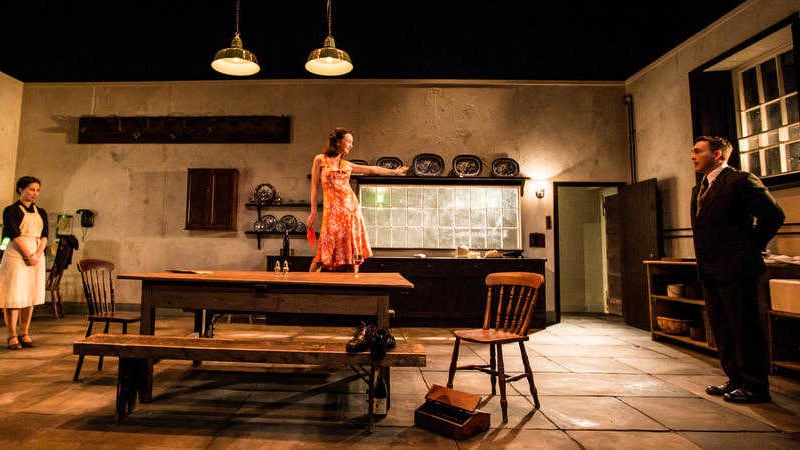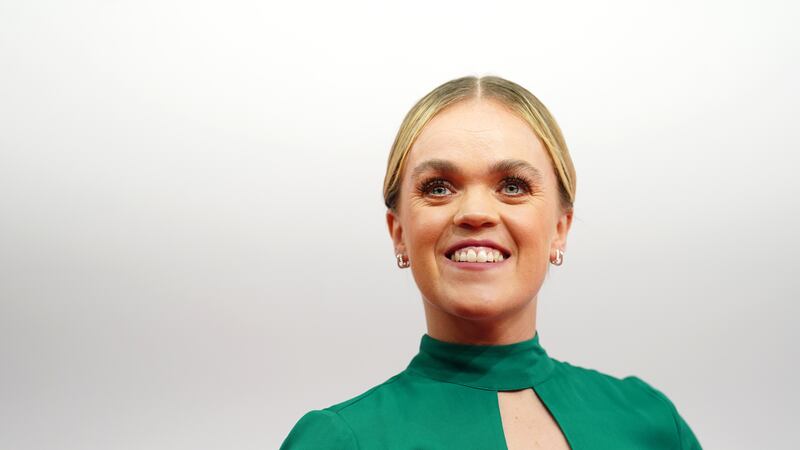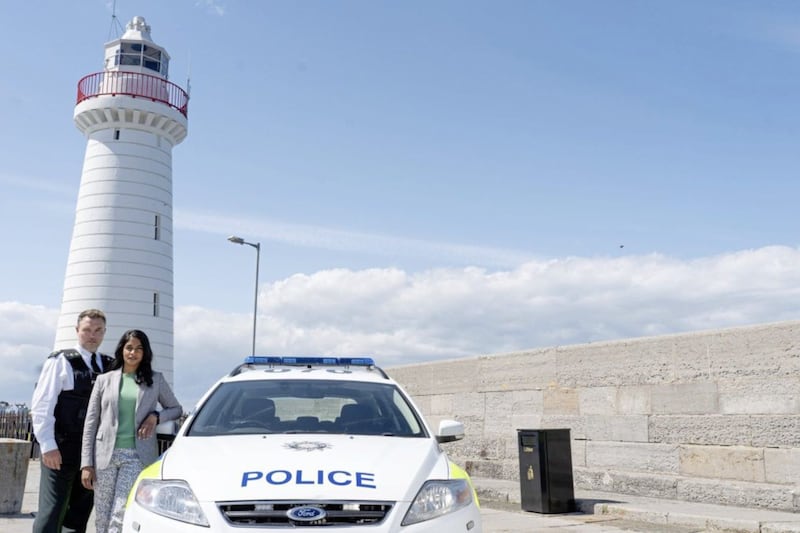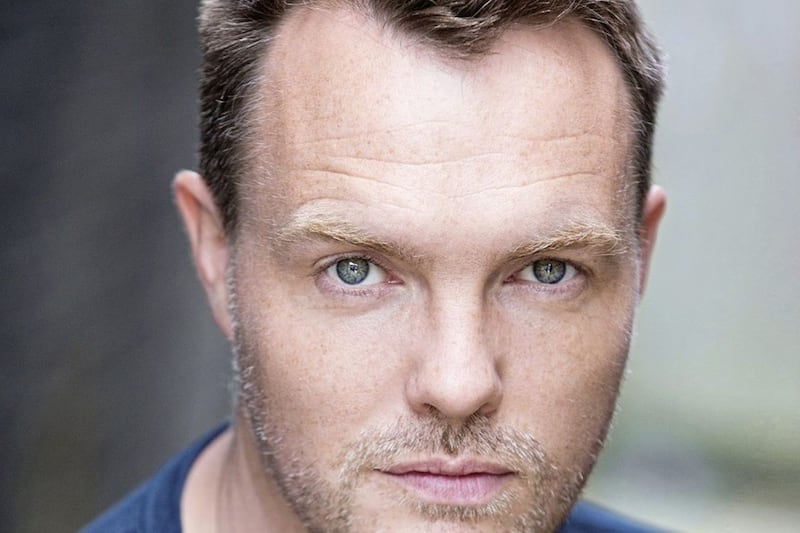LOVE, lust, jealousy and long-lasting damage fuse in a new adaptation of August Strindberg's 1888 play Miss Julie, relocated to Co Fermanagh.
It’s VE Day 1945 and while the north celebrates, Miss Julie descends into the servant’s quarters of her father’s mansion in search of chauffeur John. The pair engage in a lustful tryst and over one long, balmy night, Miss Julie’s class-obsessed world is turned upside down.
Award-winning English playwright and screenwriter Patrick Marber’s After Miss Julie was originally set in an English manor house during celebrations for the Labour Party victory in 1945. However, Marber has worked closely with Belfast theatre company Prime Cut Productions' artistic director Emma Jordan to place the play in an Irish context and a Fermanagh stately home.
After Miss Julie explores the power struggle between John (Ciaran McMenamin) and the lady of the house Julie (Lisa Dwyer Hogg) through their strong characters and physical relationship. Their moral compasses are further thrown into disarray once John’s fiancée Christine, played by Pauline Hutton, is introduced to the affair and what had seemed like a simple one-night stand develops into a complex chain of events.
Miss Julie is played by Co Antrim actress Lisa Dwyer Hogg, whose credits include the BBC's Waking The Dead, 2009 TV film Best: His Mother's Son, about George Best's mother Ann, ITV medical dramas The Royal and Casualty and hit crime series The Fall, in which she played Marion Kay, the sister of serial killer Paul Spector's first victim.
She was asked to feature in the third series, but couldn't due to schedule clashes.
"I really enjoyed working on The Fall and Allan Cubitt was an amazing writer – I was so looking forward to receiving my scripts," the Randalstown native says. "But that's the nature of this game and I'm enjoying the challenge of Miss Julie."
Dwyer Hogg describes Miss Julie as "an incredible part".
"She's really complex. She arrives on stage high from the celebrations; but at the same time she has recently been jilted and there is a sense she is throwing caution to the wind. Then by the end of the play she gets to a very dark place. The challenge is to ride that emotional journey with her.
"It is enjoyable exploring all those facets of human nature and examining why people react in certain ways to situations they find themselves in."
Although a drama with an erotic difference, Dwyer Hogg sees After Miss Julie as essentially a play about humanity.
"It's just about people – albeit damaged people, who are looking for an escape. Julie has had a privileged upbringing but it hasn't been a happy one. She's been very damaged in her childhood with her relationship with her parents, the isolation of growing up in somewhere like Fermanagh at that time."
Class, gender politics and the complexities between men and women surrounding gender roles – the actress believes these themes are still relevant today.
"It's about human beings so it doesn't matter what time you set it in. It deals with the uglier side of people – the difficulties. But what we hope is that audiences can empathise with the struggles human beings find themselves in – in relationships, love and family."
And how is the on-stage chemistry with Enniskillen born actor Ciaran McMenamin?
"It's a very dangerous relationship and it can be aggressive but there is something amazing about having four to five weeks really developing your character. It's collaborative and you go on a real journey with the director and the other actors," Dwyer Hogg says.
At Dublin's Project Arts Centre until March 19 (projectartscentre.ie); Armagh's Market Place Theatre on March 24 (marketplacearmagh.com); Letterkenny's An Grianán Theatre (angrianan.com), March 26; Belfast's MAC, March 30 to April 9 (themaclive.com)








